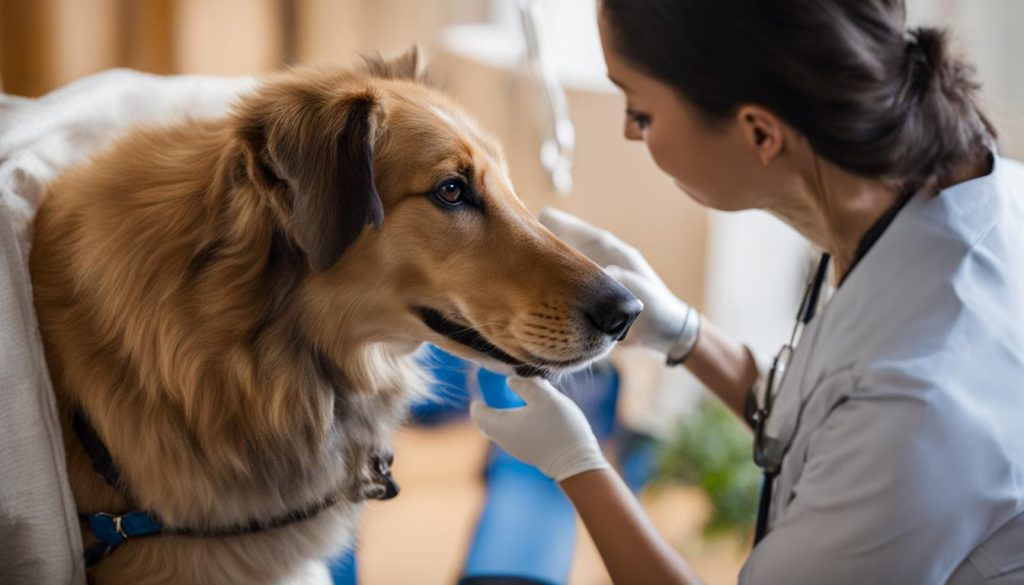Pet insurance coverage is a comprehensive solution designed to protect your furry friends from a variety of unexpected expenses. With pet insurance, you can have peace of mind knowing that your beloved pets will receive the care they need without breaking the bank. Let’s dive into what pet insurance covers and how it can benefit you and your four-legged companions.
Pet insurance plans offer a wide range of coverage that caters to the unique needs of your pets. From accidents and illnesses to routine preventive care, pet insurance policies are designed to provide financial support when you need it the most. Here are some key benefits and coverage options to consider:
What Does Pet Insurance Cover
- Pet insurance coverage includes reimbursement for veterinary fees, diagnostic services, treatments, and medications.
- Accident coverage helps manage costs associated with injuries, emergency accidents, and X-rays.
- Illness coverage provides reimbursement for major and minor illnesses, including chronic conditions.
- Some policies cover hereditary conditions, such as heart disease and hip dysplasia.
- Behavioral issue coverage can assist with diagnosing and treating excessive licking, chewing, and other issues.
With pet insurance, you can protect your pets and your wallet from unexpected veterinary expenses. By understanding the coverage options and reviewing specific policies, you can make an informed decision that ensures the health and happiness of your beloved furry friends.
Coverage for Accidents
Pet insurance accident coverage provides essential financial support for pet owners in the event of unexpected injuries or accidents. This coverage is designed to alleviate the financial burden associated with diagnostic services, treatments, hospitalization, and surgeries that may be required to restore your pet’s health.

When your furry friend sustains injuries such as bite wounds, cuts, broken bones, or toxic ingestions, pet insurance can help cover the costs of necessary veterinary care. Diagnostic services, including X-rays, MRI, ultrasounds, and blood work, are typically covered, ensuring that your pet receives the proper diagnosis. Treatments such as sutures, medications, and hospitalization can also be reimbursed under accident policies. In more severe cases, surgeries may be required to address your pet’s injuries, and pet insurance can assist in managing those costs as well.
By having pet insurance accident coverage, you can provide your pet with prompt and quality care without worrying about the financial implications. This coverage gives you peace of mind, knowing that you can afford the necessary treatments to help your beloved companion recover from accidents and injuries.
Pet Insurance Coverage for Illnesses
When it comes to the health of our beloved pets, it’s important to have the necessary coverage to handle unexpected illnesses. Pet insurance provides financial support for both major and minor illnesses, ensuring that your furry friend receives the necessary medical care without breaking the bank. Let’s explore the details of pet insurance illness coverage and what it entails.
Pet insurance coverage for major illnesses includes conditions such as cancer, arthritis, and hypothyroidism. These illnesses often require extensive diagnostic services, treatments, and ongoing care. With the right insurance plan, you can ensure that your pet has access to the necessary tests, medications, and therapies to manage these conditions effectively.
Minor illnesses, such as ear infections, digestive problems, and urinary tract infections (UTIs), are also covered under pet insurance. These conditions may not be life-threatening but can still result in discomfort and require treatment. Pet insurance provides reimbursement for diagnostic services, treatments, and medications for these common ailments, giving you peace of mind knowing that your pet’s well-being is taken care of.
In addition to major and minor illnesses, some pet insurance policies also cover chronic conditions. Chronic conditions, such as diabetes and cancer, require ongoing management and treatment. Pet insurance helps alleviate the financial burden associated with these long-term conditions, ensuring that your pet receives the necessary care and medications.

Table: Examples of Covered Illnesses
| Illness | Diagnostic Services | Treatments | Chronic Condition Coverage |
|---|---|---|---|
| Cancer | X-rays, biopsies, blood work | Chemotherapy, radiation, surgery | Yes |
| Arthritis | X-rays, joint fluid analysis | Pain medication, physical therapy | Yes |
| Ear Infections | Ear swabs, cytology | Medicated ear drops, antibiotics | No |
| Urinary Tract Infections (UTIs) | Urinalysis, urine culture | Antibiotics | No |
As you can see, pet insurance coverage for illnesses is comprehensive and ensures that your pet receives the necessary care for a variety of conditions. Take the time to review different insurance policies to find the one that best suits your pet’s needs and provides the coverage you desire.
Coverage for Hereditary Conditions
When it comes to pet insurance, it’s important to understand the coverage options for hereditary conditions. These are genetic conditions that can be passed down from one generation to another, and they can affect the health and well-being of your furry friend. Fortunately, some pet insurance plans provide coverage for hereditary conditions, giving you peace of mind and financial support in case your pet develops a condition that is genetically inherited.
Hereditary conditions that may be covered by pet insurance can vary depending on the provider and policy. Common hereditary conditions that may be eligible for coverage include heart disease, intervertebral disk disease (IVDD), eye disorders, and hip dysplasia. It’s important to review the terms and conditions of your pet insurance policy to determine if hereditary conditions are included and what specific conditions are covered. This way, you can ensure that your pet is protected and receive the necessary care if they develop a genetic condition.
Having coverage for hereditary conditions can be particularly beneficial if your pet is prone to certain genetic disorders. For example, some dog breeds are more susceptible to hip dysplasia, while certain cat breeds may be prone to heart disease. By having pet insurance that covers hereditary conditions, you can proactively manage your pet’s health and address any potential issues that may arise. This can include diagnostic tests, treatments, medications, and even surgeries if necessary.
Hereditary Conditions Coverage
| Condition | Coverage |
|---|---|
| Heart Disease | Yes |
| Intervertebral Disk Disease (IVDD) | Yes |
| Eye Disorders | Yes |
| Hip Dysplasia | Yes |
| Other Hereditary Conditions | Varies (check policy) |
As shown in the table above, pet insurance coverage for hereditary conditions is typically available. However, it’s important to note that the coverage may vary depending on the specific condition. Some policies may have certain conditions listed explicitly, while others may have a broader coverage that includes a range of hereditary conditions. Always review your policy to understand the extent of coverage for hereditary conditions.
By having pet insurance coverage for hereditary conditions, you can provide your pet with the necessary medical care without having to worry about the financial burden. It’s a proactive way to ensure the health and well-being of your furry friend, especially if they are at a higher risk of developing genetic conditions. Consider exploring pet insurance policies that offer coverage for hereditary conditions to give your pet the comprehensive care they deserve.
Coverage for Behavioral Issues
Behavioral issues can be a source of distress for both pets and their owners. Fortunately, some pet insurance plans offer coverage for diagnosing and treating these issues, providing financial support for the necessary therapies and treatments.
Whether your pet is engaging in excessive licking, fur pulling, pacing, or destructive chewing, having coverage for behavioral issues can help alleviate the financial burden associated with seeking professional help. Behavioral therapy and treatments recommended by veterinarians can be costly, but with the right insurance plan, you can receive reimbursement for these expenses.
By addressing behavioral issues early on, you can improve your pet’s quality of life and strengthen your bond with them. If you suspect that your pet may be exhibiting signs of behavioral issues, it’s important to consult with a veterinarian who can provide an accurate diagnosis and recommend the appropriate course of action.
Benefits of Coverage for Behavioral Issues
- Financial support for behavioral therapy and treatments
- Reduced out-of-pocket expenses for seeking professional help
- Improved quality of life for your pet
- Enhanced bond between you and your furry friend
“With pet insurance coverage for behavioral issues, you can give your pet the care they need without worrying about the cost.” – Anonymous
Example Pet Insurance Coverage for Behavioral Issues
| Insurance Provider | Behavioral Issues Coverage | Annual Limit | Deductible | Monthly Premium |
|---|---|---|---|---|
| PawProtect | Up to $500 | $5,000 | $100 | $30 |
| FurryGuard | Up to $1,000 | Unlimited | $250 | $40 |
| PetCare Plus | Up to $750 | $10,000 | $200 | $35 |
Note: The table above is an example and does not represent actual insurance coverage. Please refer to individual insurance policies for accurate and up-to-date information on coverage limits, deductibles, and premiums.
Coverage for Alternative Therapies
When it comes to pet insurance coverage, it’s important to consider the various options available to ensure comprehensive care for your furry friend. Some pet insurance plans offer coverage for alternative therapies, providing additional treatment options beyond traditional veterinary care. These therapies can play a valuable role in managing your pet’s health and well-being.
One alternative therapy that pet insurance may cover is acupuncture. Acupuncture involves the insertion of thin needles into specific points on your pet’s body to promote healing and alleviate pain. It has been used for centuries in traditional Chinese medicine and has gained recognition in Western veterinary practice. Through pet insurance coverage, you can explore the benefits of acupuncture for your pet without the added financial burden.
Another alternative therapy that may be covered by pet insurance is laser therapy. This non-invasive treatment uses focused light to stimulate healing and reduce inflammation. It can be beneficial for various conditions, such as arthritis, wound healing, and post-surgical recovery. By having pet insurance coverage for laser therapy, you can provide your pet with a well-rounded approach to their healthcare.

Benefits of Alternative Therapies
Alternative therapies offer several advantages for pets. They can complement traditional veterinary treatments, providing a holistic approach to their care. These therapies have been shown to reduce pain, improve mobility, boost the immune system, and enhance overall well-being. By including alternative therapies in your pet insurance coverage, you can ensure that your pet has access to a range of treatment options tailored to their individual needs.
It’s important to note that coverage for alternative therapies may vary depending on the pet insurance provider and policy. Some plans may offer comprehensive coverage for a wide range of alternative therapies, while others may have specific limitations or exclusions. It’s essential to review the terms and conditions of your chosen pet insurance policy to understand the extent of coverage for alternative therapies.
Summary
Pet insurance coverage for alternative therapies, such as acupuncture and laser therapy, can provide valuable support for your pet’s health and well-being. These therapies offer additional treatment options beyond traditional veterinary care and can play a beneficial role in managing various conditions. By including coverage for alternative therapies in your pet insurance policy, you can ensure that your furry friend receives comprehensive and holistic care. Remember to review the specific terms and conditions of your policy to understand the extent of coverage for alternative therapies.
Microchip Coverage
Microchipping plays a crucial role in reuniting lost pets with their owners. Some pet insurance plans provide coverage for the cost of microchip implantation, ensuring that your pet can be easily identified and returned to you if they go missing. This coverage offers peace of mind and an added layer of protection, especially for outdoor cats and dogs or those prone to wandering.
Having your pet microchipped is a simple and safe procedure that involves implanting a tiny chip, about the size of a grain of rice, under their skin. This chip contains a unique identification number that can be scanned by a veterinarian or animal shelter. When a lost pet is found, the chip allows them to be quickly matched to their owner’s contact information, facilitating a swift reunion.
By including microchip coverage in your pet insurance policy, you can ensure that the cost of implantation is covered, making it more accessible for pet owners. It’s important to note that while microchipping is a one-time procedure, it provides lifelong protection for your furry friend. Additionally, some insurance plans may also cover the cost of updating your pet’s microchip information, ensuring that your contact details are always up to date if you move or change phone numbers.
Benefits of Microchip Coverage
- Increased chance of being reunited with your lost pet
- Peace of mind knowing that your pet has an extra layer of identification
- Financial support for the cost of microchip implantation
- Some insurance plans may cover the cost of updating your pet’s microchip information
By taking advantage of pet insurance coverage for microchipping, you can ensure that your beloved companion has the best chance of being reunited with you in the event they become lost or stray. It’s a small investment that can make a world of difference, providing you with the reassurance that you are doing everything you can to protect your furry family member.
Prescription Medication Coverage
Pet insurance plans often provide coverage for prescription medications prescribed by veterinarians. This coverage is particularly beneficial for pets with chronic conditions that require ongoing medication management. Whether it’s medications for thyroid problems, pain management, or infection-fighting medications, pet insurance can alleviate the financial burden of these necessary treatments.
Additionally, some pet insurance plans extend coverage to include prescription food and supplements when used to treat a covered condition. This ensures that your pet receives the specialized diet they need without straining your budget. By including prescription food in the coverage, pet insurance supports the overall health and well-being of your furry companion.
It’s important to note that coverage may vary between insurance providers and policies. Some plans may have specific limits or exclusions for certain medications or treatments. Therefore, it’s essential to carefully review the terms and conditions of your pet insurance policy to fully understand the extent of prescription medication coverage.
By including prescription medication coverage, pet insurance offers peace of mind to pet owners, allowing them to prioritize their pet’s health without the worry of exorbitant costs. Whether your pet requires long-term medication for a chronic condition or short-term medication for a temporary ailment, having the financial support of pet insurance can make a significant difference in their overall care and well-being.
| Prescription Medication Coverage | Prescription Food Coverage |
|---|---|
| Reimbursement for necessary medications prescribed by veterinarians | Coverage for prescription diets and specialized pet food |
| Includes medications for chronic conditions, pain management, and infection-fighting | Supports the overall health and well-being of pets |
| Variations in coverage may exist between insurance providers and policies | Review the terms and conditions for specific limits and exclusions |
| Alleviates the financial burden of necessary medications | Allows pet owners to prioritize their pet’s health without worry |
Conclusion
Pet insurance coverage can be a wise investment for pet owners, providing financial assistance for unexpected accidents, illnesses, and preventive care. By having a pet insurance policy, you can have peace of mind knowing that you are prepared to handle costly veterinary expenses.
It’s important to carefully review the terms and conditions of different insurance providers and policies to ensure you choose the coverage that best fits your pet’s needs. Consider factors such as your pet’s breed, age, and potential health risks when evaluating whether pet insurance is worth it for you and your furry friend.
In summary, pet insurance coverage typically includes reimbursement for veterinary fees, diagnostic services, treatments, medications, hospitalization, and surgeries. Some policies may also cover hereditary conditions, behavioral issues, and alternative therapies. However, the specific coverage and costs vary, so it’s essential to do your research and select a policy that aligns with your pet’s requirements and your budget.
FAQ
What does pet insurance cover?
Pet insurance plans provide coverage for a range of expenses related to accidents, illnesses, and preventative care for cats and dogs. This coverage includes reimbursement for veterinary fees, diagnostic services, treatments, medications, hospitalization, and surgeries. Some plans also cover hereditary conditions and behavioral issues. It’s important to review the specific policy to understand the coverage limits, deductibles, and exclusions.
Does pet insurance cover accidents?
Yes, pet insurance accident coverage helps pet owners manage the costs associated with injuries and emergency accidents. This can include bite wounds, cuts, broken bones, swallowed objects, and toxic ingestions. Diagnostic services such as X-rays, MRI, ultrasounds, and blood work, as well as treatments like sutures, medications, hospitalization, and surgeries, are typically covered under accident policies.
Is pet insurance coverage available for illnesses?
Absolutely, pet insurance illness coverage provides reimbursement for eligible costs related to major and minor illnesses. This can include cancer, arthritis, hypothyroidism, ear infections, digestive problems, and urinary tract infections (UTIs). The coverage encompasses the diagnosis, treatments, and ongoing care for these illnesses. Chronic conditions, such as diabetes and cancer, are also covered under some policies.
Does pet insurance cover hereditary conditions?
Some pet insurance plans include coverage for hereditary conditions and birth defects. Conditions such as heart disease, intervertebral disk disease (IVDD), eye disorders, and hip dysplasia may be eligible for coverage. It’s important to check if hereditary conditions are covered under the policy, especially if your pet is prone to these disorders.
Is behavioral issue coverage included in pet insurance plans?
Yes, behavioral issues can be distressing for pets and their owners. Some pet insurance plans offer coverage for diagnosing and treating behavioral issues such as excessive licking, fur pulling, pacing, and destructive chewing. This coverage can help cover the costs of behavioral therapy and treatments recommended by veterinarians.
Do pet insurance plans cover alternative therapies?
Yes, alternative therapies are becoming increasingly popular for pet healthcare. Some pet insurance plans cover alternative therapies such as acupuncture, physiotherapy, chiropractic care, rehabilitative therapy, hydrotherapy, and low-level laser therapy. Reimbursement is provided for these therapies when they are used to treat a covered condition.
Does pet insurance cover microchipping?
Yes, microchipping plays a crucial role in reuniting lost pets with their owners. Some pet insurance plans cover the cost of microchip implantation, ensuring that your pet can be easily identified and returned to you if they go missing.
Does pet insurance cover prescription medications?
Yes, pet insurance plans typically include coverage for prescription medications prescribed by a veterinarian. This can include medications for chronic conditions like thyroid problems, as well as pain management and infection-fighting medications. Some plans also cover prescription food and supplements when used to treat a covered condition.
Is pet insurance worth it?
Pet insurance coverage can be a valuable investment for pet owners, providing financial support for unexpected accidents, illnesses, and preventative care. The specific coverage and costs vary between insurance providers and policies, so it’s important to carefully review the terms and conditions. Consider factors such as your pet’s breed, age, and potential health risks when determining if pet insurance is worth it for you and your furry friend.






